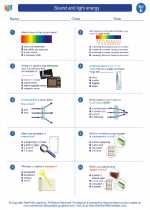Carbonation
Carbonation is the process by which carbon dioxide gas dissolves in water to form carbonic acid. This process is responsible for the fizz in carbonated beverages and plays a role in the formation of caves and other geological formations.
How Carbonation Occurs
When carbon dioxide (CO2) gas comes into contact with water (H2O), it reacts to form carbonic acid (H2CO3). This reaction is reversible, meaning that carbonic acid can release carbon dioxide gas and water under certain conditions.
Applications of Carbonation
Carbonation is widely used in the production of carbonated beverages such as soda, sparkling water, and champagne. It also plays a role in the formation of karst landscapes, where carbonic acid dissolves limestone to create caves, sinkholes, and underground rivers.
Study Guide
- Define carbonation and explain the process by which it occurs.
- What role does carbonation play in the production of carbonated beverages?
- Describe the impact of carbonation on geological formations.
- Discuss the environmental implications of carbonation, including its role in the carbon cycle.
- Explain how carbonation can be reversed and give examples of this process in nature.
- Research and present a case study on a specific karst landscape and its formation due to carbonation.
◂Science Worksheets and Study Guides Fifth Grade. Sound and light energy
Study Guide Sound and light energy
Sound and light energy  Activity Lesson
Activity Lesson Sound & Light
Sound & Light  Worksheet/Answer key
Worksheet/Answer key Sound and light energy
Sound and light energy  Worksheet/Answer key
Worksheet/Answer key Sound and light energy
Sound and light energy  Worksheet/Answer key
Worksheet/Answer key Sound and light energy
Sound and light energy  Worksheet/Answer key
Worksheet/Answer key Sound and light energy
Sound and light energy  Vocabulary/Answer key
Vocabulary/Answer key Sound and light energy
Sound and light energy  Vocabulary/Answer key
Vocabulary/Answer key Sound and light energy
Sound and light energy 

 Activity Lesson
Activity Lesson
 Worksheet/Answer key
Worksheet/Answer key
 Worksheet/Answer key
Worksheet/Answer key
 Worksheet/Answer key
Worksheet/Answer key
 Worksheet/Answer key
Worksheet/Answer key
 Vocabulary/Answer key
Vocabulary/Answer key
 Vocabulary/Answer key
Vocabulary/Answer key

The resources above cover the following skills:
Physics: Students will use scientific skills and processes to explain the interactions of matter and energy and the energy transformations that occur
Wave Interactions: Provide evidence to show that light travels in a straight line until it is reflected or refracted.
Observe and describe that a ray of light changes direction when it crosses the boundary between two materials such as air and water or air to glass.
Wave Interactions: Recognize and describe how light interacts with different materials.
Classify materials as translucent, transparent or opaque.
Pose questions about why objects appear to be different colors.